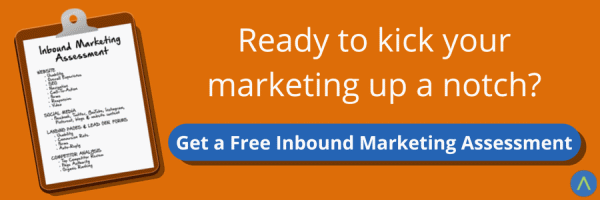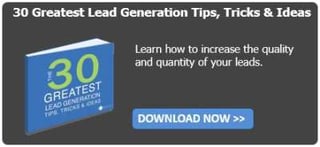You have created an amazing website. 
But… no one can find you.
Don’t panic.
This quick blog post will help you increase your organic (non-paid) search engine rankings.
This list may seem daunting and overwhelming. Not to worry. While all of these things will help your overall search results, there is one thing that will give you the biggest impact.
The one big thing is … Search is about being conversational. Google wants you to answer questions, provide value, educate and most importantly BE REAL. They don’t want websites that are built for search engines. They want websites that are built for people.
If you create content that people want, need and like, others will naturally share it (creating backlinks and increased traffic) and Google will respond with higher search rankings for your pages.
Now, here are some of the technical things that will help you optimize your search efforts.
Auditing your site
Check out your pages and get a baseline metric and info report about your traffic, links, keywords, etc.
- Number of visits (monthly)
- Number of visitors (monthly)
- Number of unique visitors (monthly)
- Number of Inbound linking domains
- Top performing keywords (rank, traffic, lead generators)
- Total number of pages indexed
- Which pages are receiving the most/least amount of traffic?
HubSpot offers a great article How to Audit Your Website for Improved SEO and Conversions.
Choosing and utilizing Keywords
Google is very clear on keywords. They don’t want you to stuff keywords on pages for ranking (in fact it will have a negative impact on your site). They want you to naturally use keywords on your site. The content on your site should read well and answer questions that your visitor might be asking. Writing with this goal in mind will not only provide a better user experience, it will allow your site to be found more easily in organic search.
In Google’s words - “In creating a helpful, information-rich site, write pages that clearly and accurately describe your topic. Think about the words users would type to find your pages and include those words on your site.”
If you want to make sure you have enough keywords on each page, follow this guideline.
- Each webpage should have one main keyword that is used naturally 1-3 times.
- Be sure to include this word in your page title, meta description, and H1
- Include your keywords in your page URL
- Include your keywords in the file name of your images or in the ALT tag.
Do a keyword analysis. Many tools are available to help you with your keyword search.
It is important that the keyword(s) you are using are commonly used in searches when looking for a product or service like yours.
Defining your URL structure
It is important to develop a URL structure and follow it consistently throughout the site and when creating new pages.
Make sure you use keywords in your URL’s and convey clearly what can be found on each page.
It is best to use – (dashes) between words rather than _ (underscores). Google connects words with dashes so you will more opportunities to have your pages discovered.
Here are a couple examples of well-structured UR'sL that explain exactly what you will find on that page.
Bestrecipesanywhere.com/pizza/vegetarian-pizza
Bestrecipesanywhere.com/easy-dinners/one-pan-beef-stroganoff
Developing a Responsive Site
Google will always do their best to promote a site that will provide the best user experience. With over 50% of all searches being done on mobile devices, having a “responsive” site is very important.
A responsive website uses the same HTML code and serves up an optimized version (size) of your web page across all desktop and mobile devices.
Many companies set up “mobile” sites that launch when you open a URL from a mobile device. These pages have different URL’s. This type of mobile site is NOT considered responsive.
Google offers a Mobile Friendly Test where you can check to see if your site meets their mobile friendly criteria.
Effectively using Title Tags and Meta Tags
Search engines look at Meta tags to understand what each page is about and to help determine rankings. This component of SEO does not have the same level of importance as it used to. However, Meta tags still play a role in your overall strategy. Your Meta description will show up in your search listing to convey to the user what is on the page. It is important to create strong Meta descriptions for every page of your site.
Building Inbound Links
As I mentioned in the very beginning of this blog, inbound links will occur naturally if you develop great content.
However, because inbound links are so important to organic search ranking, it doesn’t hurt to create links to your site.
Not all inbound links are equal. It is important that you focus on building links from quality websites. Search engines call this “link juice”. When Google sees high authority sites linking to your website, they conclude that your site must be important and move your site up in organic ranking.
For some great ideas on how to build links to your site, check out 32 White Hat Ways to Build Inbound Links.
Checking for errors
Response code errors such as 302, 404 and 500-level response codes can helpful to users but they also signal Google that there is an error or errors in your site code. Make sure you clean up any broken links.
Google Webmaster Tools and Xenu’s Link Sleuth are both very good tools for finding and fixing code errors.
Optimizing Site performance
Fast-loading and optimized pages will not only increase your page ranking, it will also impact the engagement and conversions on your site.
Think about the last time your visited a page that loaded slowly. Did you leave and choose another site? It is not uncommon for visitors to abandon a slow site.
Learn 10 Ways to Speed Up Your Website – and Improve Conversion by 7%
Resources
There are many more technical tips, tricks, and advanced techniques that can help you improve your site ranking.
The following resources will help you take your site to the next level, monitor your progress, and increase your ranking.
Google Search Engine Optimization Starter Guide
MOZ Whiteboard Friday – series of quick whiteboard videos explaining different SEO elements – I find these to be very helpful
Rankwatch - Get automated E-mail notifications of any change in your rankings
Now, go create some amazing content, optimize your site, and GET FOUND.


